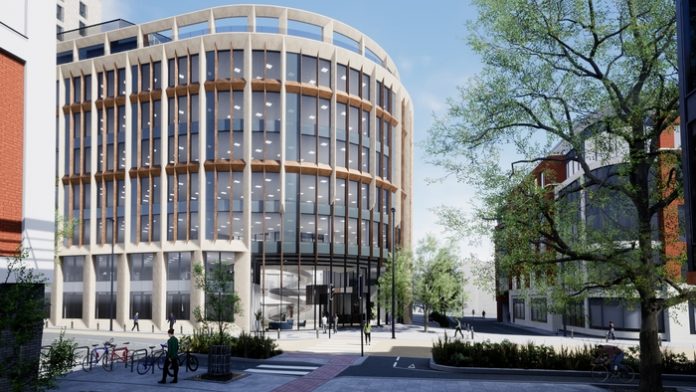Bristol risks not achieving the government’s net zero targets, unless significant action is taken to upgrade and improve commercial real estate in the next 10 years, according to new analysis by leading property consultancy JLL.
A new report, Sustainability and Value in the Regions, concludes that just over 85% of the office stock in Bristol – equating to nearly 14 million sq ft – is at risk of not meeting the UK government’s target for all non-domestic properties to have an EPC B rating by 2030. This is compared to an average of 90% across all of England and Wales’ leading regional centres.
Bristol – the first UK council to declare a climate emergency – has committed to achieving net zero status by 2030.
With no completed office development across the eight UK regional centres having yet achieved the UK Green Building Council’s (UKGBC) embodied and operational net zero carbon standard, the research also finds that just 10% of total existing office stock in Bristol is BREEAM Good to Outstanding, compared to 16% nationally.
Cutting-edge office scheme Aurora at Finzels Reach, a major regeneration project being developed in Bristol by Cubex, is counted among the BREEAM Outstanding rated offices highlighted in the report. It is soon to be joined by Halo, a new 116,000 sq ft office also being built at Finzels Reach, which has been accredited BREEAM Outstanding, the first development outside London to achieve the toughest new assessment criteria.
The study also throws the spotlight on EQ, which will be the first new build office development in Bristol to commit to being net zero carbon in operation, in accordance with the UKGBC framework. At 200,000 sq ft, EQ, which is being developed by CEG for completion in 2023, will be an all-electric building with 100% green energy supply.
JLL estimates that the UK’s rate of repurposing commercial stock needs to hit 5% annually in order to help the country hit its 2050 carbon neutrality goal, which would be more than double the levels of redevelopment seen in the last decade. In Bristol, replacement rates currently stand at around 0.9%.
The research also showed that sustainability is rising up the priority list for businesses, resulting in growing demand for office space with the highest environmental credentials against a backdrop of lack of supply. The office footprint of regional firms with science-based sustainability targets has more than tripled in the past three years to almost 4.5 million sq ft across the UK. Bristol accounts for just under 725,000 sq ft, which ranks it the third largest among the cities in JLL’s sample.
Simon Peacock, lead director of the Bristol office of JLL, said: “It is brilliant that Bristol was the first UK council to declare a climate emergency and encouraging to see that investors are increasingly prioritising sustainability targets, with some exciting, state-of-the-art green office schemes coming forward. However, as our report shows, there is still a long way to go to ensure regional cities, including Bristol, meet their goals. In the offices sector, we need to drastically improve the environmental credentials of existing buildings, drive up the rate of repurposing existing stock where appropriate and, when building new, keep challenging ourselves and raising the bar.”
Elaine Rossall, head of UK offices research at JLL, said: “As COP26 has only served to reinforce, the next 10 years are imperative to the future of the planet. The built environment accounts for around 40% of all carbon emissions, but is even higher in many cities, meaning our cities and commercial centres must change or risk undermining any regional efforts – now set in stone in the carbon frameworks of most major cities – to achieve net zero status in the 2030s. This research indicates just how far short of those targets some regional office markets will be if, in addition to ongoing investment in new low carbon stock, the vast majority of existing offices aren’t improved via refurbishment or retrofit.”
The research analysed the commercial property markets of Thames Valley, Bristol, Cardiff, Birmingham, Manchester, Leeds, Glasgow and Edinburgh. EPC analysis excluded Scottish cities.






















